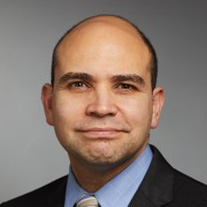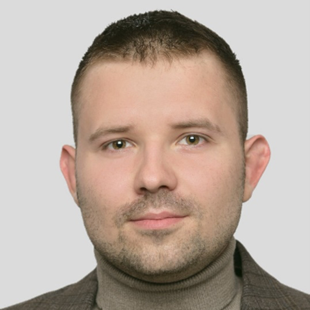Interview With Cassius Iyad Ochoa Chaar, MD, MS

Cassius Iyad Ochoa Chaar, MD, MS
Cassius Iyad Ochoa Chaar, MD, MS, is an associate professor of surgery specializing in vascular surgery and endovascular therapy. He is a board-certified general and vascular surgeon practicing at the Yale Physicians Building. Dr. Chaar's medical journey started at the American University of Beirut, Lebanon, where he acquired his graduate and medical degrees. He completed his general surgery residency at Yale-New Haven Hospital and further advanced his specialization with a fellowship in vascular and endovascular surgery at the University of Pittsburgh Medical Center. His clinical interests include peripheral artery disease, varicose veins, aortic and visceral aneurysms, carotid disease, deep vein thrombosis and dialysis vascular access.
You share the same name with the world-famous fighter and boxer, Cassius Clay, famously known as Muhammad Ali. What inspired you to pursue your own "fight" for medical education?
My dad was a big fan of Cassius Clay. My path to becoming a vascular surgeon was not without hurdles, particularly as an international medical graduate seeking residency training in the U.S. To prove myself within the American medical system, I dedicated years to research and began as a preliminary resident in general surgery. Eventually, I earned a categorical spot and completed my training in general surgery. Subsequently, I specialized in vascular and endovascular surgery in Pittsburgh.
How do you collaborate with cardiologists and other specialists in treating patients with vascular disease at your institution?
Vascular disease requires collaborative care from various specialties to address the complex health issues of patients. I work closely with cardiologists, hematologists, podiatrists, nephrologists and wound care specialists. We maintain a strong collaborative relationship, including cardiologists who perform peripheral interventions. While endovascular therapy is commonly utilized, more advanced cases often require open vascular surgery or hybrid techniques. However, the key to effective patient care lies in understanding the disease and treating patients holistically. We avoid focusing solely on vessels and instead consider all aspects of their health. This principle allows for collaboration among physicians; complementing each other's expertise and providing the best possible treatment for our patients.
What do you see as the next frontier in vascular surgery, given the significant advancements in the field over the past two decades?
The future of vascular surgery shines bright, with various frontiers being explored and offering improved treatment possibilities for our patients. One area of particular interest is the potential for deep venous arterialization, offering a lifeline for patients with chronic limb-threatening ischemia who lack visible arteries in the foot. Trials like PROMISE II and PROMISE III allow us to utilize deep veins as conduits for arterial flow, preventing limb loss. Advancements in endografts and branch technology are also transforming the treatment of thoracic and ascending aortic conditions; both emergencies and slowly growing aneurysms. Additionally, we're exploring innovative approaches to venous disease, such as the SAVVE trial involving surgical implantation of deep venous valves in patients with severe venous insufficiency and ulcers. With emerging devices and techniques including stents capable of delivering valves, we can address this issue more effectively.
What advice would you give to aspiring medical students interested in pursuing a career in academic surgery?
As someone who works closely with medical students and residents, I find great joy and fulfillment in guiding and inspiring them. My goal is to ignite their passion, whether it's in research, surgery or patient interactions. In the surgical field, cultivating intellectual curiosity is vital for success. It goes beyond comprehending diseases and providing optimal care; it encompasses innovation and pushing boundaries. Therefore, my advice to every trainee is to discover and pursue their own passion with unwavering dedication. Hard work and dedication are integral to success in this field.

This article was authored by Luka Mitar, a medical student at School of Medicine University of Zagreb in Zagreb, Croatia, and a member of ACC's Medical Student Section. Twitter: @LukaMitar2.
This content was developed independently from the content developed for ACC.org. This content was not reviewed by the American College of Cardiology (ACC) for medical accuracy and the content is provided on an "as is" basis. Inclusion on ACC.org does not constitute a guarantee or endorsement by the ACC and ACC makes no warranty that the content is accurate, complete or error-free. The content is not a substitute for personalized medical advice and is not intended to be used as the sole basis for making individualized medical or health-related decisions. Statements or opinions expressed in this content reflect the views of the authors and do not reflect the official policy of ACC.